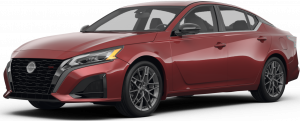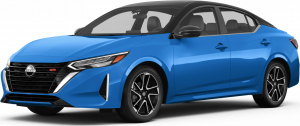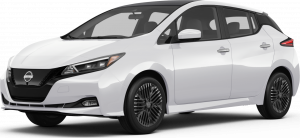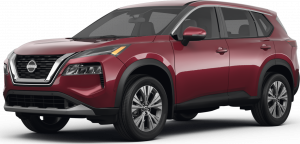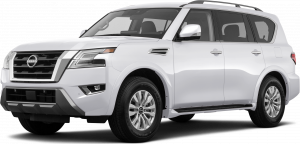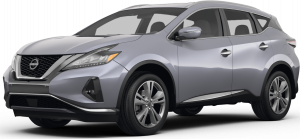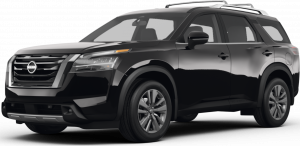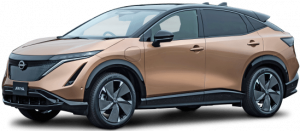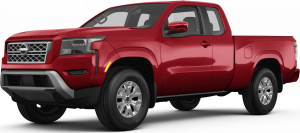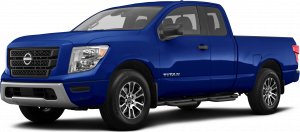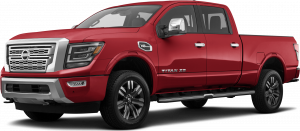Compare Nissan Leasing vs. Buying in Oceanside

Navigating the decision between leasing and buying a vehicle in Oceanside can seem daunting. Each option offers distinct financial and lifestyle benefits, depending on your personal circumstances and driving needs. Let’s explore these two paths to help you determine which choice aligns best with your lifestyle and financial goals.
Leasing vs. Buying a Vehicle in Oceanside: Which is Right for You?
Financial Considerations: Leasing vs. Buying
Leasing: Leasing a car often requires less upfront cash and lower monthly payments compared to buying. This is because when you lease, you're essentially paying for the depreciation of the vehicle during the lease term, plus interest and fees, rather than the entire cost of the car. This can make higher-end models more accessible to those who might not want or be able to purchase them outright.
However, since you do not gain equity in the vehicle, continual lease payments must be factored into your long-term budgeting.
Buying: Purchasing a vehicle is traditionally seen as a long-term investment. Initially, buying a car typically involves higher monthly payments and a sizable down payment or trade-in value to offset the cost of the car. However, each payment builds equity toward vehicle ownership. Once you pay off the car, it becomes an asset that you might choose to sell, trade, or keep driving payment-free.
The long-term financial benefits include no further monthly payments and the potential to save money over time, provided the vehicle is well-maintained and doesn’t depreciate too quickly.
Personal and Lifestyle Considerations
Leasing: Leasing might be ideal if you enjoy driving a new model every few years and appreciate having the latest safety features and technology. It’s also a good fit if you expect your vehicle needs to change in the short term, like if you're planning for a growing family or foresee a change in your commute. Leasing also relieves you of the hassle of selling the car later. However, it does come with mileage limitations and the requirement to keep the car in good condition, which can incur fees if exceeded.
Buying: Buying is typically better for those who drive a lot and prefer not to worry about mileage caps. It’s also suitable for those who like to personalize their vehicles or tend to keep their cars for many years. Owning a car provides the freedom to modify or sell the vehicle at your discretion.
Additionally, over the long term, the cost of buying a car may be less than leasing several cars over the same period, making it a financially sound option for long-term planners.
Pros and Cons of Leasing vs. Buying a Car
| Leasing | Buying | |
|---|---|---|
| Pros | Lower monthly payments typically
New car every few years Manufacturer warranty coverage during lease term | Ownership of the vehicle at the end
More freedom to customize the car Potential resale value |
| Cons | Mileage restrictions and potential excess mileage fees
Not building equity in the car Less flexibility at the end of the lease term | Higher monthly payments typically
Potential for negative equity underwater on a loan) Full responsibility for maintenance and repairs |
Vehicle Financing Explained: Unlocking the Path to Your New Car
Vehicle financing is a popular route many drivers take to purchase their next vehicle. Whether you're eyeing a brand-new model or a used car, financing can make the buying process more accessible and manageable. Let’s explore the benefits of vehicle financing and the necessary documents you'll need to get started.
Benefits of Vehicle Financing
Accessibility: Financing allows you to own a car without paying the full price upfront. By breaking down the vehicle's cost into monthly payments, it becomes more affordable for individuals who cannot make a full payment all at once.
Flexibility: Financial institutions often offer a variety of loan terms and rates, which means you can tailor your financing plan to suit your budget and payment preferences. Whether you prefer a shorter loan term with higher payments or a longer term with lower payments, there’s likely an option that fits your financial situation.
Credit Building: Regularly making car payments on time can help build or improve your credit score. A good credit history will be beneficial for future credit activities like securing home loans or other financing needs.
Ownership: Unlike leasing, financing a car leads to ownership once all payments are made. This means you have the freedom to keep the car as long as you like, sell it on your own terms, or trade it in toward a new vehicle.
Documents Needed for Vehicle Finance Application
When you’re ready to finance a vehicle, you’ll need to gather several key documents to submit with your application. These documents help lenders verify your identity, income, and creditworthiness:
Proof of Identity: A valid government-issued photo ID such as a driver’s license or passport is required to protect against identity theft and fraud.
Proof of Income: Lenders will need to verify your income to ensure you have the means to make your monthly payments. This is typically done through recent pay stubs, tax returns, or bank statements.
Proof of Residence: You will need to provide a recent utility bill, lease agreement, or mortgage statement that shows your current address. This helps the lender confirm your living situation and stability.
Credit and Banking History: Though not always physical documents, your credit score and banking history will be checked. In some cases, you may need to provide bank statements or consent for the lender to access your credit report.
Vehicle Information: If you're financing a used vehicle, you may need to provide details about the car, including the make, model, year, mileage, and VIN (Vehicle Identification Number). This information will be used to assess the vehicle’s value and condition.
Insurance Proof: Most lenders will require proof of auto insurance before finalizing the financing, as this protects their investment in your vehicle.
Vehicle financing can be a smart strategy for purchasing your next car, offering financial flexibility, the opportunity to build credit, and ultimately vehicle ownership. By understanding the benefits and preparing the necessary documents in advance, you can ensure a smoother financing process. Whether you're purchasing your first car or upgrading to a newer model, financing offers a pathway to achieve your automotive goals without the financial burden of an outright purchase.
Vehicle Leasing Explained
Vehicle leasing is a popular alternative to buying a car outright. Essentially, leasing a car is akin to renting it for a longer period—typically two to four years—at the end of which you return the vehicle to the dealership. Unlike buying, where you pay for the entire value of the car, leasing involves paying for the depreciation of the car during the lease term, plus fees and interest.
Benefits of Leasing a Vehicle
1. Lower Monthly Payments: Since you're only paying for the vehicle's depreciation during the lease term (plus fees), monthly payments are usually lower compared to buying a car with a loan.
2. Less Upfront Cost: Leases often require a lower down payment, and sometimes you may even find lease specials with minimal upfront costs.
3. New Car Experience: Leasing allows you to drive a new car every few years, ensuring you always have the latest technology and most efficient models.
4. Warranty Coverage: Most leases last for the duration of the vehicle's factory warranty, so most repairs will be covered without extra costs.
5. Tax Benefits: In some cases, especially if you use the car for business, leasing a car can offer tax advantages as lease payments can often be deducted as business expenses.
The Process of Leasing
Choose a Vehicle: Start by selecting the make and model of the car you want to lease. Consider what kind of car suits your needs and preferences.
Negotiate Your Lease Terms: Once you choose a vehicle, negotiate the terms of your lease, including the length of the lease, the annual mileage limit, and how much you'll pay upfront.
Credit Approval: Like taking out a loan, leasing a car requires credit approval. Dealerships will check your credit score to determine your lease terms.
Closing the Deal: After approval, you'll sign the lease agreement, pay any required fees or deposits, and then you can take your new leased car home.
Return the Vehicle: At the end of the lease, you return the vehicle to the dealership. You'll need to settle any end-of-lease charges like over-mileage costs and fees for excessive wear and tear, if applicable.
Understanding Different Lease Terms
Lease Duration: Common lease terms are 24, 36, or 48 months. You'll choose a term based on how long you want to keep the vehicle.
Mileage Limits: Leases come with annual mileage limits—typically 10,000 to 15,000 miles. If you exceed this limit, you'll pay a fee for each extra mile at the end of the lease.
Wear and Tear: Leases specify what's considered acceptable wear and tear. Excessive damage beyond this will incur fees when you return the car.
Purchase Option: Some leases include the option to buy the car at the end of the lease period for a predetermined price.
Leasing a vehicle can be an excellent choice for those who enjoy driving a new car every few years and prefer lower monthly payments without the long-term commitment of buying a car. Understanding the full terms and implications of your lease agreement is crucial to making the most out of your leasing experience.
Discover Your Best Vehicle Option at Mossy Nissan Oceanside
Deciding whether to lease or buy a vehicle in Oceanside depends heavily on your financial situation, lifestyle needs, and personal preferences. If you value flexibility and staying current with car technology without the commitment of a long-term loan, leasing could be the way to go. Conversely, if you're looking for a more permanent solution and want to see your payments lead to ownership, buying might be your best bet. Whichever path you choose, consider how each option aligns with your current and anticipated future lifestyle to make the most informed decision. Remember, the right choice is one that not only fits your budget but also supports your lifestyle and driving needs in the vibrant city of Oceanside.
At Mossy Nissan Oceanside, we're committed to helping every driver in our community find the perfect vehicle option that fits their lifestyle and budget. Whether you're exploring leasing for the flexibility it offers or interested in the benefits of ownership, we have resources tailored just for you. Dive into our guide on Why Lease a Nissan in Oceanside? to understand how leasing can provide you with the latest models and technological advancements without the commitment of purchasing. Alternatively, if you're considering a longer-term investment, explore Why Buy Certified Nissans in Oceanside? to learn about the reliability, extended warranties, and overall value that come with our certified pre-owned vehicles. For those ready to move forward, our Certified Nissan Financing Options in Oceanside offer a variety of flexible financing plans designed to fit your financial needs. No matter your choice, Mossy Nissan Oceanside is here to guide you to the best vehicle for your coastal lifestyle.



